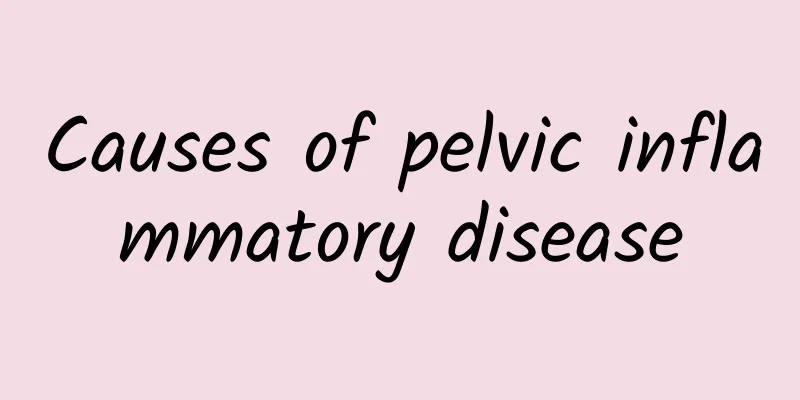Why do you need to take contraceptive pills after an abortion? Five things women should pay attention to after an abortion

|
Abortion is usually a measure taken when contraceptive failure leads to an unexpected pregnancy, and sexual intercourse is prohibited within one month after the abortion. But do you know why the doctor still asks you to take birth control pills after the abortion? Many people know that you cannot have sex for one month after having an abortion. Since you don't have sex, there should be no more unwanted pregnancy, right? Then why does the doctor want you to take birth control pills? In fact, the birth control pills referred to here are not emergency contraceptives, but short-acting contraceptives. The ingredients of this oral contraceptive are usually estrogen and progesterone. It uses hormones to inhibit ovarian ovulation, change the endocrine mucus of the cervix, and prevent sperm and egg from combining to form a fertilized egg, thereby achieving the effect of contraception. Fertility can be restored after stopping the medication. Why do you need to take birth control pills after an abortion? 1. Use contraception early to prevent recurrence Even after an artificial abortion, normal female fertility can be restored quickly. It has been reported that in the first cycle after abortion, 83% of women can resume ovulation, and the earliest can resume ovulation on the 11th day after the operation. Although doctors recommend not to have sex within 1 month, in fact, accidents still occur clinically. Some people do not take good contraceptive measures after the operation and get pregnant again, and have to undergo another operation. If improper contraceptive measures are taken after abortion, and repeated miscarriages occur within a short period of time, not only will the uterus be injured again, but the risk of cervical, uterine and pelvic infections will increase. The incidence of pelvic inflammatory disease and uterine and cervical adhesions after surgery will be higher, which will affect future fertility. Among the general contraceptive measures after abortion, in addition to some women who have no plans to have children in the near future who may consider directly inserting an IUD, oral contraceptives can inhibit ovarian ovulation, change the endocrine mucus of the cervix, and prevent sperm and egg from combining to form a fertilized egg, thereby achieving the effect of contraception. Fertility can be restored after stopping the medication, which is relatively convenient and effective. 2. Helps repair the uterus after abortion During the artificial abortion operation, the instruments are repeatedly inserted into the uterine cavity through the vagina, which may damage the endometrium to varying degrees. In fact, in the gynecological clinic of the hospital, there are many people who come to the hospital for treatment due to reduced menstrual flow or uterine adhesions after artificial abortion. The estrogen in oral contraceptives can promote the proliferation and repair of the endometrium and reduce post-abortion bleeding, while progesterone can inhibit the proliferation of the endometrium and promote the atrophy, absorption and discharge of decidual tissue, thereby promoting uterine repair. In addition, oral contraceptives can inhibit the secretion of cervical cells and increase the consistency of cervical mucus, thereby reducing the incidence of postoperative lower reproductive tract ascending infection and postoperative intrauterine adhesions. For some women who have irregular menstruation before surgery, it can regulate the reproductive endocrine axis to achieve the effect of regulating menstruation. 3. You can prepare for pregnancy and have a child immediately after stopping the medication Oral short-acting contraceptives have a short effect and are metabolized quickly, so they will not accumulate in the body. Reproductive function can be restored and pregnancy can be prepared in the first menstrual cycle after stopping the drug. Think about taking oral contraceptives after abortion. It can not only promote the recovery of the endometrium, but also restore reproductive function after one month. Therefore, it is recommended to take contraceptives under the guidance of a doctor after abortion. In addition to the contraceptive effect, it also helps repair the endometrium and prevent adhesion and infection. Things to note after abortion 1. There is a low fever on the first day after painless abortion, mild, paroxysmal abdominal pain within 2 to 3 days after surgery and it tends to ease, a small amount of vaginal bleeding within one week after surgery, no menstruation about one month after surgery, and heavy menstruation within 2 to 3 months after surgery. These may be normal conditions after painless abortion. 2. After painless abortion, you should pay attention to vaginal bleeding to prevent the condition from getting worse. If there is no discomfort, you can follow the doctor's advice and go to the hospital for a vaginal B-ultrasound examination and routine secretion check after two weeks or one month after the menstruation resumes to understand the recovery after the operation. If vaginal bleeding lasts for more than one week after abortion, and is accompanied by lower abdominal pain, fever, leucorrhea turbidity and odor, you should go to the hospital for a follow-up examination and treatment in time. 3. Pay attention to rest and strengthen nutrition. After outpatient surgery, you should rest in the observation room for 1 hour according to the doctor's instructions. You can return home only if there are no special circumstances. You should rest in bed for 2-3 days after painless abortion. You can get out of bed and move around later, and gradually increase the activity time. Do not engage in heavy physical labor or cold water labor within half a month after painless abortion to avoid cold; after painless abortion, you should eat more protein-rich foods such as fish, meat, eggs, bean products, and fresh vegetables rich in vitamins to speed up your body's recovery. 4. Keep the vulva clean and strictly prohibit sexual intercourse. After painless abortion, the cervix has not completely closed, and the endometrium also has a process of repair. During this period, special attention should be paid to keeping the vulva clean and hygienic, and the sanitary napkins and underwear used should be washed and changed frequently. Do not sit in a bath within half a month after the operation to prevent dirty water from entering the vagina and causing infection. If you have sexual intercourse too early after painless abortion, it is easy to cause acute endometritis and pelvic inflammatory disease, and it can also cause secondary infertility. Therefore, sexual intercourse is strictly prohibited within one month after painless abortion. 5. Adhere to good contraception. After painless abortion, the ovarian and uterine functions gradually recover, and the ovaries produce eggs on schedule. If you do not adhere to good contraception, you will soon get pregnant again. Therefore, after painless abortion, you should choose reliable contraceptive measures as soon as possible. Painless abortion can only be used as a remedial surgery after contraceptive failure. Contraception must be the main method, and painless abortion cannot be used as a contraceptive measure. (Reference website: Sina Parenting) |
<<: What are the causes of female cervicitis? What are the three major causes of female cervicitis?
Recommend
A must-read for weight loss, don’t throw apple peels away! Nutritionist Zhao Hanying: 3-day apple meal to lose weight, this one action is the key
Did you know? Eating apples with the skin can hel...
How to treat endometritis effectively and cause irregular menstruation
Irregular menstruation caused by endometritis can...
What harm will cervicitis bring to women? How should women prevent cervicitis?
Everyone knows that many female friends now suffe...
What seafood can you eat during pregnancy?
The risk of congenital miscarriage during pregnan...
Briefly introduce some preventive measures for pelvic inflammatory disease
You should know that pelvic inflammatory disease ...
Patients with irregular menstruation will have their menstrual period significantly prolonged
Patients with irregular menstruation will have th...
Can I get pregnant with adenomyosis?
Patients with adenomyosis can become pregnant, an...
Can I get pregnant with chocolate cyst?
If the chocolate cyst is small, you can usually g...
Women who have had an abortion must learn how to take care of themselves
Nowadays, abortion surgery is more and more commo...
What are the symptoms of left ovarian cyst?
Ovarian cysts are a type of ovarian tumor. Althou...
What happens if chocolate cyst bleeds after surgery?
What happens if chocolate cyst bleeds after surge...
The difference between benign and malignant ovarian cysts
What are the symptoms of ovarian cysts? What are ...
Sea salt hot compress therapy is effective in treating adnexitis
Traditional Chinese medicine treatment of adnexit...
Will vulvar leukoplakia cause vulvar itching? What are the symptoms of vulvar leukoplakia?
Patients with vulvar leukoplakia will feel vulvar...
Attention, attention, cervical hypertrophy can lead to infertility!
Cervical hypertrophy can lead to infertility. Lad...









